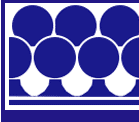|
Articles
Articles | Presentations | Radio
Interviews
"The Shadow knows"
Shadow jurors can help lawyers adapt on the fly
Lawyers Weekly USA, July 16, 2007
Sometimes, despite the best efforts of her trial team, an attorney has trouble predicting how a case will go at trial. One way to learn as you go is to hire shadow jurors to watch the trial and provide ongoing feedback. In this column, Edward P. Schwartz discusses a variety of ways to use shadow jurors and the advantages and disadvantages of each. He also reviews technology that can help retrieve real-time data from shadow jurors during trial.
A chance to improve your game
Lawyers Weekly USA, April 19, 2007
In this column, Edward P. Schwartz discusses the value of conducting post-verdict juror interviews. He reviews some of the limitations to this research and provides guidance on how to organize interviews to maximize the useful information you get from jurors, both regarding the case at hand, and in developing trial strategies for future cases.
Indirect Questions Reap Most Information in Oral Voir Dire
Lawyers Weekly USA, October 9, 2006
In a companion piece to his previous column on supplemental juror questionnaires, Edward P. Schwartz reviews sound strategies for voir dire preparation and implementation. He illustrates how different question structure is appropriate for oral answers than for written ones. In addition, he discusses how asking around the point can elicit more useful information than confronting sensitive issues directly.
Getting the most from your supplemental juror questionnaire
Lawyers Weekly USA, July 3, 2006
Supplemental Juror Questionnaires (SJQs) can be very useful tools for effective jury selection. Edward P. Schwartz discusses the importance of SJQs for both jurisdictions with extensive, lawyer-conducted voir dire and those with limited, judge conducted, group voir dire. He also outlines some effective strategies for designing a good questionnaire.
Jury consultants foster success in mediation
Help settle case before it ever goes to a jury
Edward P. Schwartz dedicates his latest column to the value of trial consulting for case mediation. He outlines how many trial preparation strategies can be fruitfully applied to prepare for mediation, as well. He also discusses the thorny issue of how much of your jury research to reveal to the other side during settlement negotiations.
Secret Ballot Or A Show Of Hands?
Lawyers Gain Advantage By ‘Nudging’ Jurors To Preferred Voting Method (PDF File)
Lawyers Weekly USA, February 27, 2006
In this column, Edward P. Schwartz discusses the various methods by which juries can take votes, from secret ballot to a show of hands. He argues that this is an underappreciated strategic element of any jury trial. Mr. Schwartz identifies circumstances under which a lawyer might prefer one over another and how a litigator can “nudge” a jury towards using the voting method she wants.
Why Mock Trials Are Bad Diagnostic Tools (PDF File)
Lawyers Weekly USA, December 19, 2005
Edward P. Schwartz is now contributing a periodic column on trial strategy to Lawyers Weekly USA. In this first column, he discusses the advantages of running smaller, more targeted jury studies over broad, expensive mock trials, especially early in the trial preparation process. A mock trial should be used as a dress rehearsal when all presentation issues have already been resolved.
Defense calling
damages experts decreases verdicts
Lawyers Weekly USA, May 11, 2005
Many defense lawyers fear that by calling their own damages experts at trial, they appear to be conceding liability. Bill Ibelle, of Lawyers Weekly, reports on an interview with Edward P. Schwartz about the potential value to defense attorneys of arguing damages at trial. Most attorney concerns are unfounded and the benefits can be substantial.
Credentials Not As Important
As Expert's Ability To Teach
Lawyers Weekly USA, May 9, 2005
Sometimes it pays to shell out the big bucks for the expert with the fanciest credentials. For most cases, however, it is more important to choose an expert who is a good communicator. So says Edward P. Schwartz, in this interview conducted by Bill Ibelle of Lawyers Weekly.
In March, 2005, Edward P. Schwartz published an editorial
in Massachusetts Lawyers Weekly in which he discusses some of the shortcomings
of the recently ratified American Bar Association "Principles
for Juries and Jury Trials." Click
here to read more
In September of 2003, Edward P. Schwartz published an op-ed
in the Boston Globe about the implications of the Gary Lee Sampson case for
the future of capital punishment in Massachusetts.
"Death Comes to Town," Boston Globe, September 19, 2003.
Many of Mr. Schwartz's ideas for reform of the criminal jury system are laid out in an article published in the University of Southern California Interdisciplinary Law Journal.
"And
So Say Some of Us. What to do when Jurors Disagree," 9 USC Interdisc. LJ
429 (2000).
(PDF file, opens a new window)
|


